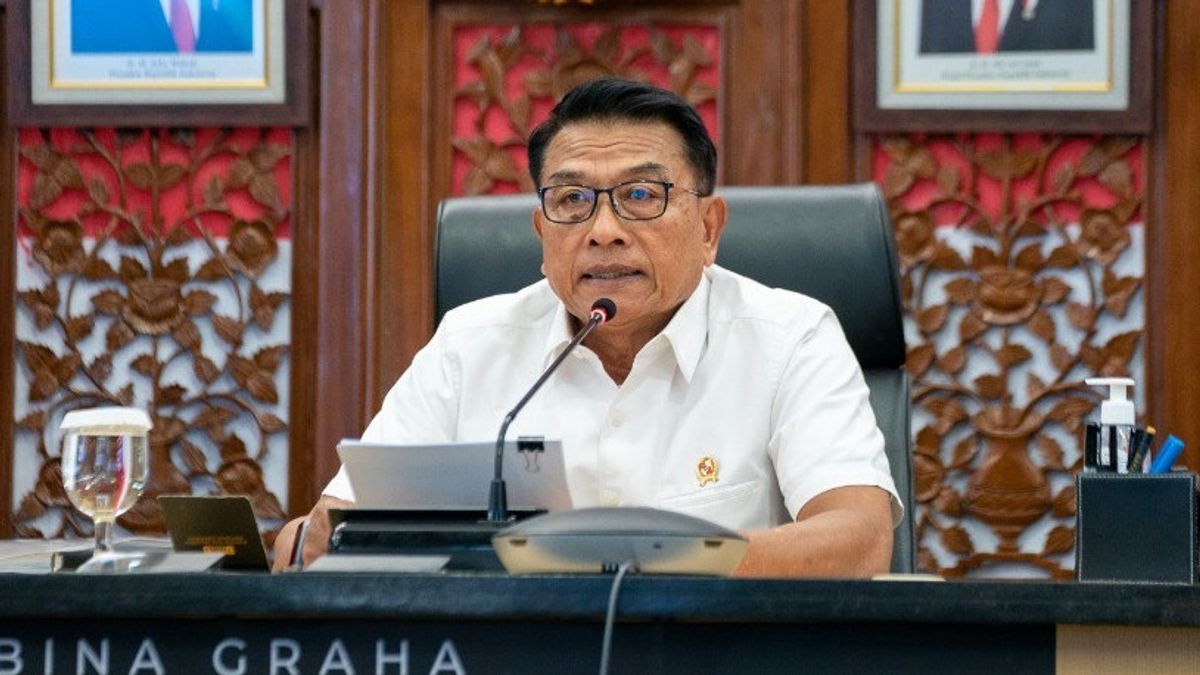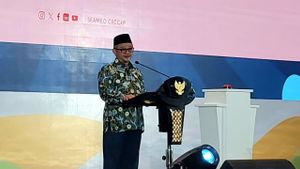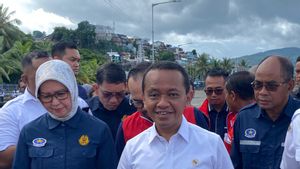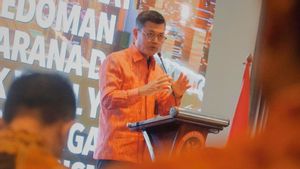Presidential Chief of Staff Dr. Moeldoko invites world countries to start collaborating to build an early warning system to tackle the threat of a global food crisis. This multinational cooperation is also considered important to encourage the formation of a global food security ecosystem.
"The impact of climate change has been felt, so anticipatory steps are very important. I propose that we build cooperation between meteorological, climatological and geophysical agencies to build a joint early warning system so that we have the same sense of crisis," said Moeldoko, Tuesday, January 24 in Jakarta.
He conveyed this in the launching of the Asia and the Pacific Regional Overview of Food Security and Nutrition report organized by the United Nations Food and Agricultural Organization (FAO) online.
FAO considers Indonesia a leading lights that can maintain food security for 275 million people during the pandemic. For example, the government's strategic policies during the pandemic were able to have a positive impact on the agricultural sector that grew in 2020, 2021 and 2022. This is also evidenced by an increase in exports of agricultural products of 10.52 percent from US$4.24 billion in 2021 to US$4.69 billion in 2022.
The Indonesian government has also implemented land access policies for farmers with agrarian reform, farmer regeneration, sorghum food alternative development and various adaptation action programs for climate change.
These efforts, according to Moeldoko, paid off. One of them, the Global Food Security Index (GFSI) in 2022 recorded the Indonesian Food Security Index which rose at the level of 60.2 or higher than the 2020-2021 period.
With significant results for efforts to deal with the pandemic and the 5F crisis (Food, Feed, Fuel, Fertilizer, difficult access to Finance), Indonesia is also one of the pilot countries. However, Moeldoko reminded the importance of global cooperation because Indonesia cannot act alone.
The multinational cooperation to form a global food security ecosystem is the key to dealing with the food crisis. Indonesia continues to encourage this in the G20 Presidency, with the achievement of a sustainable and resilience agreement for agriculture and food systems. Indonesia continues to oversee its implementation and strengthen this commitment in the region through ASEAN chairmanship," said Moeldoko.
"With the implementation of this global agreement, food security and global nutrition fulfillment will show the progress we need," he added.
The 'Asia and the Pacific Regional Overview of Food Security and Nutrition 2022 Urban Food Systems and Nutrition' report, commonly abbreviated as Regional State of Food Insecurity (SOFI) published by FAO, UNICEF, WFP and WHO, emphasizes the threat of urban hunger and malnutrition due to the impact of the pandemic, poverty and uncontrolled population growth.
It is recorded that nearly 1.9 million people cannot buy nutritious healthy foods in 2020. This is very ironic considering that Asia and the Pacific region are among the largest producing areas for key commodities such as rice, fish, milk and many others. However, we still fail to provide nutritious food for the entire community in this region. This means that there is a problem with the agricultural system that we have now," said Sridhar Dharmapuri, as FAO's Senior Food Safety and Nutrition Officer after Moeldoko delivered his presentation.
The English, Chinese, Japanese, Arabic, and French versions are automatically generated by the AI. So there may still be inaccuracies in translating, please always see Indonesian as our main language. (system supported by DigitalSiber.id)













